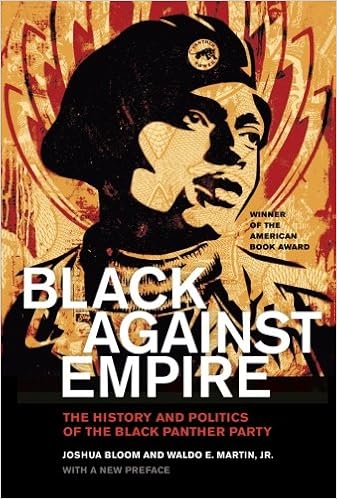
I have read a lot about the Black Panthers including most of the memoirs (Seize the Time, Taste of Power, This Side of Glory, Soul on Ice, Assata, Panther Baby) and several good books on narrower pieces of the history (Living for the City, Survival Pending Revolution, Murder of Fred Hampton). So I was looking for a big picture, and didn’t expect to learn much detail here. But I was shocked. There was something new on every page. Who knew that the FBI paid a highly placed agent (William O’Neal) to write stories in the Black Panther encouraging party members to torture suspected informants? Or that the commonly reproduced “October 1966” ten point program is actually from July 1968? Or that women Black Panthers hotly contested gender dynamics in the Party at the United Front on Fascism Conference? And even the events I was very familiar with (like the early police patrols in Oakland, or storming the Assembly in Sacramento) the authors put these in a whole new light, placing the events in a broader context and relation to one another in a way that it all makes sense.
Most important for me was the analysis. The authors show HOW the Black Panther Party built POWER, step by step. In Part I, they trace the roots of the Panthers’ political practices, and explain their initial successes patrolling the police. It’s telling that when black people figured out how to use gun laws to build political power, Reagan and the Republicans enacted laws to restrict the right to bear arms! In Part II, the authors show how the Party shifted gears once they couldn’t legally run the armed patrols any more. They go through this on all levels (theoretical discussion, lots of historical detail). I especially liked hearing about how the Party got organized in New York, Seattle, Chicago, Los Angeles, and cities across the country. It is hard to believe how quickly the Party grew. In Part III they discuss the service programs, the repression, and mobilization by allies. I hadn’t realized the breakfasts and other community programs only came about in 1969. The authors show that the Party kept growing even when the government was attacking it the hardest. The Panthers were able to sustain their armed self-defense because they attracted support from so many sources. Not just radicals! I couldn’t believe organizations like the Urban League or mainstream politicians like Willie Brown were taking real action to oppose the repression of the Panthers. So much has changed today. And I knew there were Asian, and Latino, and even white groups that had copied the Black Panther Party. But I didn’t understand how important broader allies were in organizing on the ground support for trials, and community programs, and the newspaper, and keeping the Party growing. Part IV the authors talk more about those alliances, and some of the incredible international work the Panthers did, with China, Algeria, Vietnam, Cuba.
As a long-time activist, these were the most important lessons for me. We can’t just take up arms and take over our communities. Anyone with sense knows that wouldn’t work today. But neither can we just march and sit in and demand civil rights and turn the other cheek. More black people are in jail today than were slaves before the Civil War. How can we do something about that? The authors don’t give easy answers to these questions. But they really helped me think about what it would take. If we are going to resist authority, we will be repressed. So who is going to help us face that repression?
The last few chapters where the Party unravels were the hardest part of the book for me to read. So sad that things had to come to that. But ignorance is bliss, right? I was really grateful that the book didn’t pull any punches. And I think I am convinced by the authors’ arguments that the tensions that tore the Party apart were larger than the personal and organizational conflicts through which they played out, and had a lot to do with growth of the black middle-class, and the repeal of the draft.
Thank you Drs. Martin and Bloom! Your book really changes things for me.
No comments:
Post a Comment